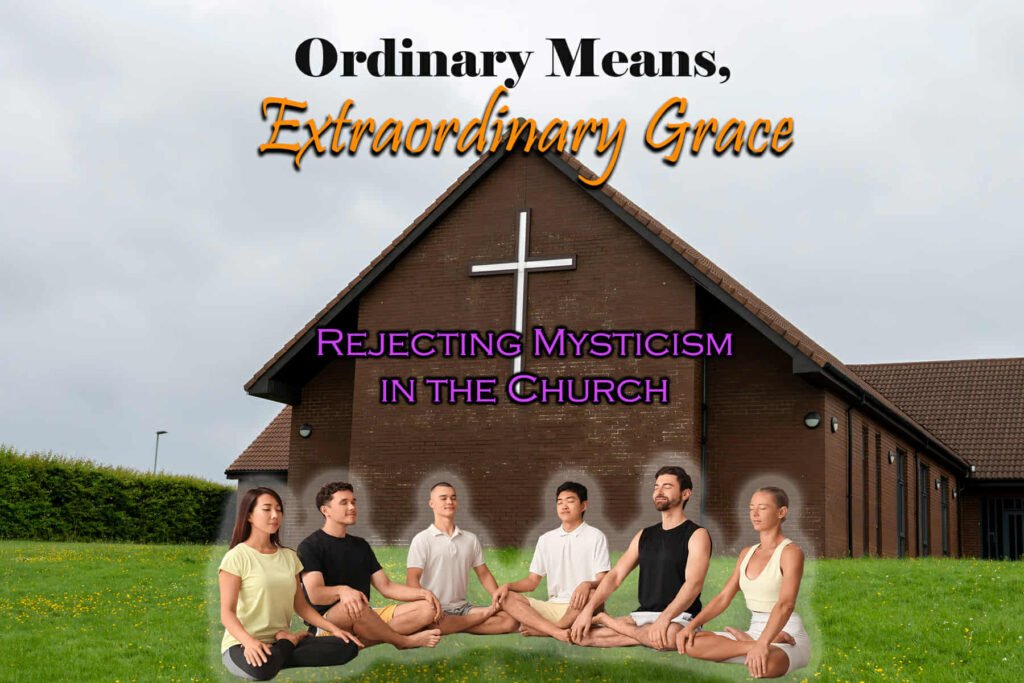⏱️ Estimated Reading Time: 3 min read
8 Questions to Ask Before Joining a Spiritual Formation Class
By Dave Jenkins
Fall 2025 | Theology for Life
Spiritual formation is one of the most talked-about concepts in evangelical circles today. Churches, colleges, and ministries frequently advertise classes, workshops, or retreats promising “deep transformation” or “ancient practices for today”. While the desire for spiritual maturity is good, not every path offered under the label of “spiritual formation” is rooted in Scripture. Before signing up for a spiritual formation class, here are some essential questions to ask.
One: How is Spiritual Formation Defined?
Is the class built on biblical sanctification—growing in Christlikeness by the Spirit, through the Word—or does it lean on mystical language about “union with God” apart from Scripture? A biblical class should define spiritual formation as conformity to Christ (Romans 8:29), not as self-discovery or mystical experience.
Two: What Role Does Scripture Play?
Is the Bible central in the class, or is it supplemented (or even overshadowed) by contemplative practices, journaling exercises, or silence? Spiritual growth comes through the Word (John 17:17; 2 Timothy 3:16–17), not apart from it.
Three: Who are the Recommended Authors and Influences?
Are voices like Richard Foster, Dallas Willard, John Mark Comer, Henri Nouwen, or Brennan Manning promoted? These authors frequently introduce mystical practices not rooted in Scripture. A trustworthy class should point students to biblical teachers who emphasize the sufficiency of the Word.
Four: What Practices are Encouraged?
Does the syllabus include centering prayer, breath prayers, Lectio Divina (as a mystical technique), labyrinth walks, or visualization? These are not biblical disciplines. Instead, look for practices that the Scriptures command: prayer, fasting, Bible reading, worship, fellowship, and service.
Five: How Does the Class Describe Prayer?
Is prayer presented as conversation with God shaped by His Word, or as silence, stillness, and inner impressions? Jesus taught His disciples to pray with words grounded in Scripture (Matthew 6:9–13), not through emptying the mind.
Six: What View of the Gospel is Presented?
Does the class emphasize repentance, faith, and obedience flowing from the finished work of Christ, or does it reduce the gospel to therapeutic well-being and personal wholeness? True formation begins at the Cross and continues through sanctification in Christ.
Seven: How is Community Understood?
Is spiritual growth primarily seen as an inward, individual journey, or is it rooted in the gathered life of the Church—under sound preaching, sacraments, and fellowship? Scripture presents sanctification as both personal and corporate.
Eight: How Does the Class Address Discernment?
Are warnings about false teaching and unbiblical practices dismissed as “divisive” or “legalistic”? Or does the class encourage believers to “test everything, hold fast what is good” (1 Thessalonians 5:21)? Biblical spiritual formation will never pit discernment against love.
Conclusion: Test Everything by the Word
Not every spiritual formation class is dangerous, but many borrow heavily from Contemplative Spirituality and/or mystical traditions. As with any teaching, the standard must be the Word of God.
Before joining, ask hard questions. Ensure the class exalts Christ, depends on Scripture, and directs you to the ordinary means of grace God has appointed for His people. Spiritual maturity comes not through novelty or mystical shortcuts, but through steady growth in the truth of God’s Word by the Spirit of God, within the Church of God.
This article appears in the Fall 2025 Issue of Theology for Life Magazine, exploring “The Means of Grace.”

Ordinary Means, Extraordinary Grace: Rejecting Mysticism in the Church
Dave Jenkins is happily married to his wife, Sarah, and lives in beautiful Southern Oregon. He is a writer, editor, and speaker who loves Christ, His people, the Church, and sound theology.
Dave serves as the Executive Director of Servants of Grace Ministries and the Executive Editor of Theology for Life Magazine. He is the Host and Producer of the Equipping You in Grace Podcast and a contributor to and producer of Contending for the Word.
He is the author of The Word Explored: The Problem of Biblical Illiteracy and What To Do About It (House to House, 2021), The Word Matters: Defending Biblical Authority Against the Spirit of the Age (G3 Press, 2022), and Contentment: The Journey of a Lifetime (Theology for Life, 2024).
You can connect with Dave on Facebook, X (Twitter), Instagram, YouTube, or subscribe to his newsletter.
When he is not engaged in ministry work, Dave enjoys spending time with his wife, going to movies, sharing a meal at a favorite restaurant, or playing a round of golf with friends. He is also a voracious reader, particularly of Reformed theology and the Puritans, and is often found working through a stack of new books from a wide range of Christian publishers.
Dave earned his M.A.R. and M.Div. from Liberty Baptist Theological Seminary.




